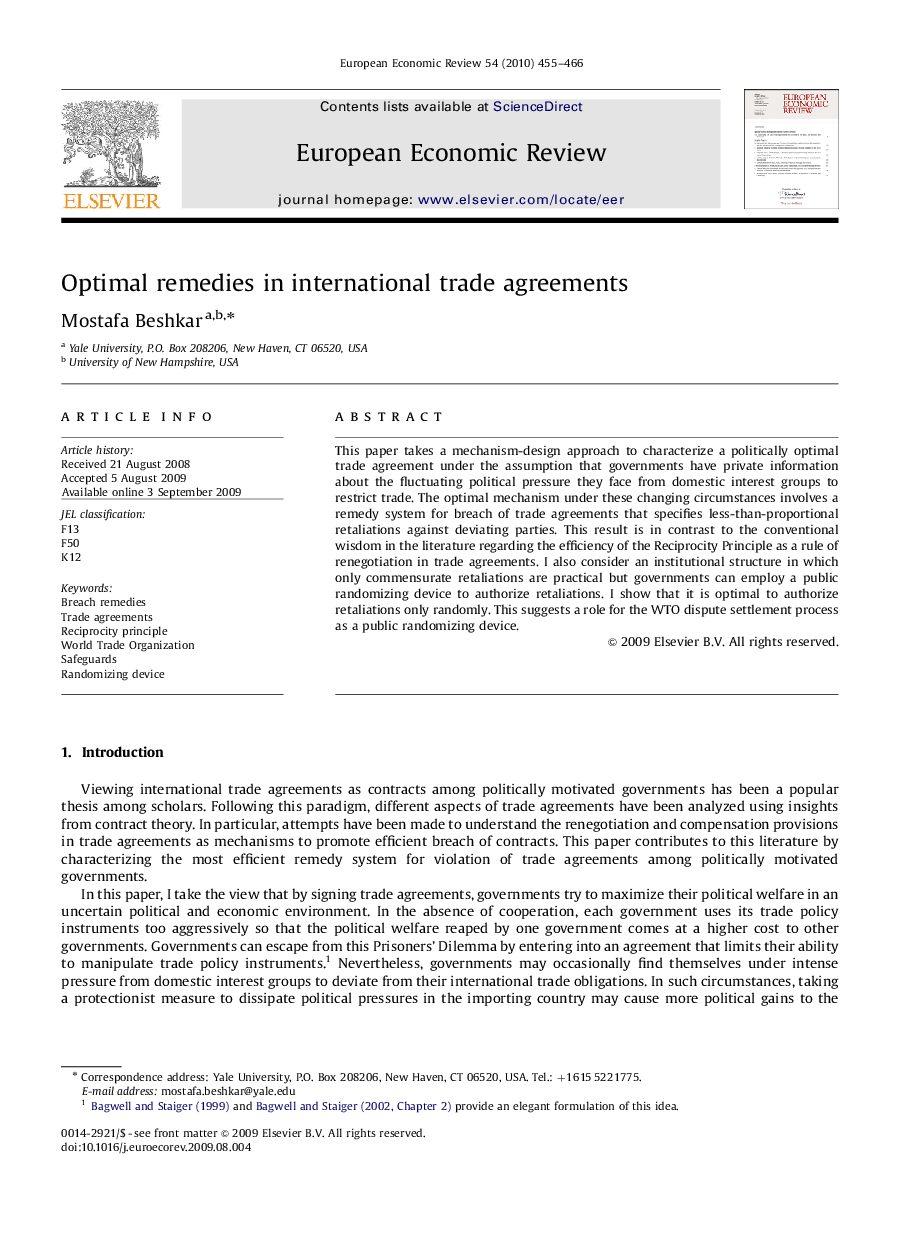| Article ID | Journal | Published Year | Pages | File Type |
|---|---|---|---|---|
| 5067247 | European Economic Review | 2010 | 12 Pages |
This paper takes a mechanism-design approach to characterize a politically optimal trade agreement under the assumption that governments have private information about the fluctuating political pressure they face from domestic interest groups to restrict trade. The optimal mechanism under these changing circumstances involves a remedy system for breach of trade agreements that specifies less-than-proportional retaliations against deviating parties. This result is in contrast to the conventional wisdom in the literature regarding the efficiency of the Reciprocity Principle as a rule of renegotiation in trade agreements. I also consider an institutional structure in which only commensurate retaliations are practical but governments can employ a public randomizing device to authorize retaliations. I show that it is optimal to authorize retaliations only randomly. This suggests a role for the WTO dispute settlement process as a public randomizing device.
